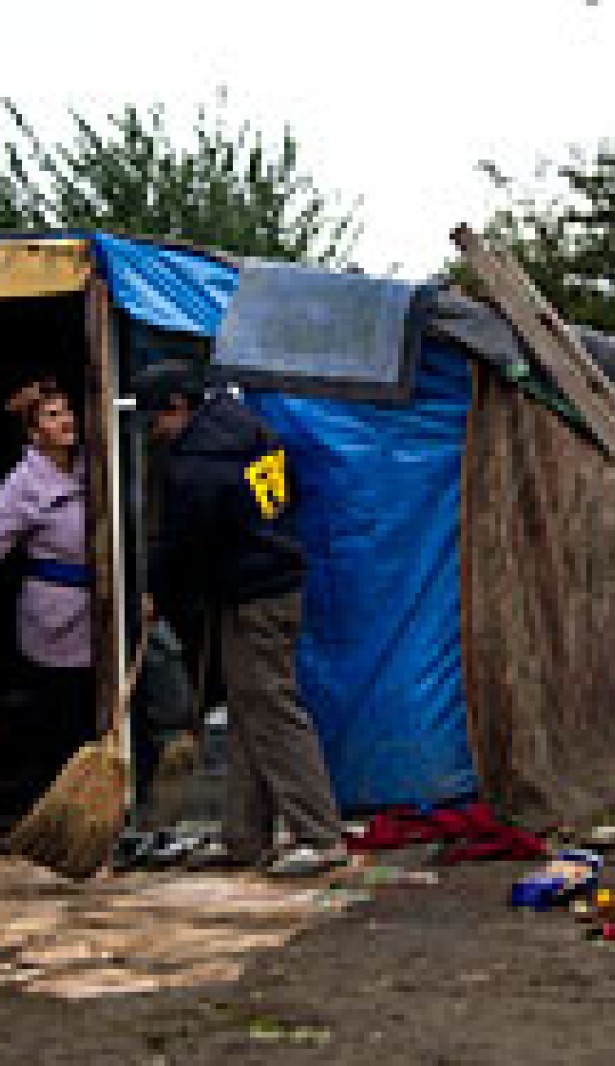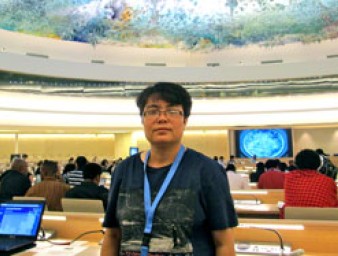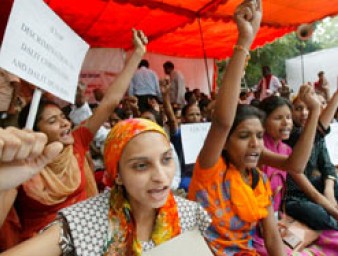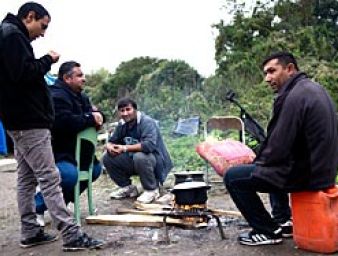Working for a more inclusive policy towards migrant Roma in France
18 October 2013
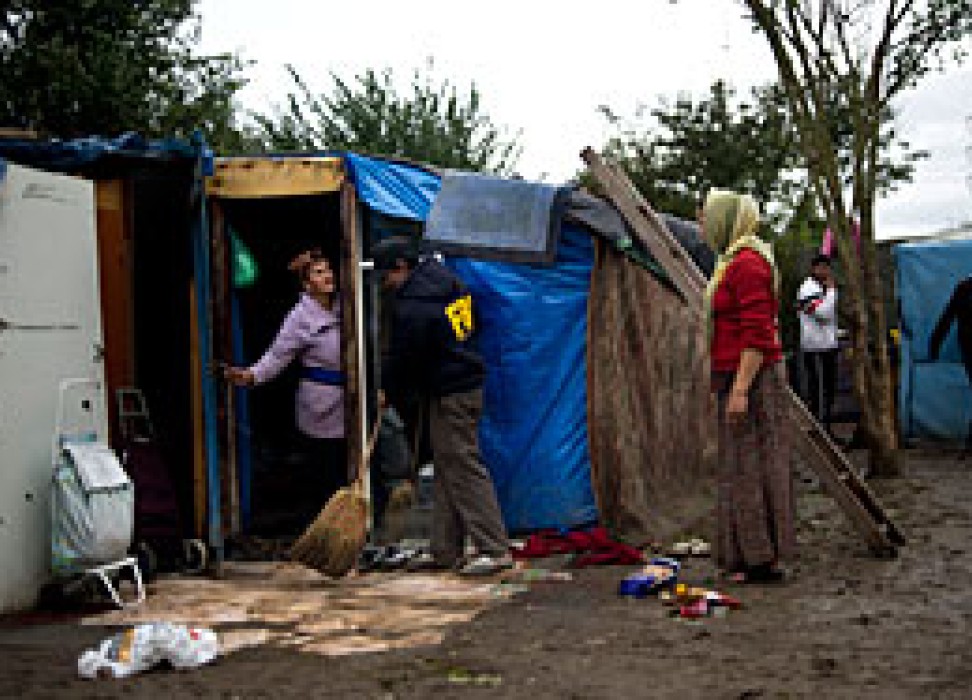
Many migrants from Eastern European countries such as Romania, most but not all of whom are Roma, have been living in irregular shantytowns around large urban areas in France for several years. Their number is estimated to be 17,000-20,000. Some have arrived in the wake of evictions of Roma in their countries of origin. The Réseau Action Culture Education Droit (RACED) informs that many Roma living in a shantytown in Ivry sur Seine in France, were previously evicted from the center of the Romanian town of Dorohoi in 2006. In France, Roma migrants have also been going from one forced eviction to another.
“The level of prejudice and even hatred in the French public debate on migrant Roma is quite astonishing, particularly given the relatively small size of this population,” observes Saimir Mille, chairman of La Voix des Rroms (Voice of the Roma), a civil society organization working at the grassroots level to empower the Roma. In 2010, the French Government expelled many migrant Roma to Romania and Bulgaria, although its conduct was found to be in violation of the European Union rules on freedom of movement.
In August 2012, the new Government issued an inter-ministerial circular (bylaw) on forced evictions, which contained some progress in terms of alignment with relevant international standards. This included that forced evictions could only be carried out after advance planning to ensure the provision of housing alternatives, continued access to health and social services and education.
The circular is not legally binding, and in a June 2013 report by Dominique Baudis, the French Ombudsman (Defender of Rights), stated that it had rarely been implemented. According to the report, forced evictions have continued since its adoption, even in winter when the suspension of evictions usually applies.
The Ligue des Droits de l’Homme (LDH) together with the European Roma Rights Centre (ERRC) report that a record number of over 13,000 persons have been subjected to forced evictions in the first nine months of 2013. During the evictions, the meagre property of Roma migrants is often destroyed, forcing them to re-start from scratch. Children’s school attendance is interrupted as families have to move and no housing alternatives are provided. Sometimes they are driven from one municipality to another, which the Ombudsman has described as an example of “forced nomadism”.
In her September 2013 speech to the Human Rights Council, UN Human Rights Chief Navi Pillay expressed concerns about the findings of the report and urged the French Government to act upon the Ombudsman’s recommendations.
The UN Human Rights Office for Europe, which has visited several of the shantytowns as well as authorized settlements, works with civil society organizations such as La Voix des Rroms as part of its broader cooperation with the network of European Roma Grassroots Organizations (ERGO). The Office has also offered constructive cooperation to the French Government’s Inter-ministerial commission for lodging and access to housing (DIHAL).
“Have the Roma turned down offers of normal housing and normal jobs? Have they said that they preferred to live in shantytowns and collect scrap metal? I don’t think so,” said Jan Jařab, the UN Human Rights Office Regional Representative for Europe speaking at the French National Assembly on 27 September 2013. Jařab expressed concern about statements made by French politicians indicating that Roma are not capable of or interested in any integration process. “Moreover, there are good examples from other countries which show that Roma who were formerly stigmatized as ‘incapable of integration’ and their children as having ‘intellectual disabilities’, did remarkably well when they were given opportunities,” he added.
The UN Human Rights Regional Representative asked the French Government to support grassroots organizations working with migrants. Above all, he urged the authorities to stop the vicious circle of forced evictions which are being carried out without regard for international human rights standards. The Office will continue following the situation closely and interacting with the Government, civil society, the Ombudsman’s office and the National Consultative Commission for Human Rights.
This year marks the 20th anniversary of the World Conference on Human Rights, which led to the adoption of the Vienna Declaration and Programme of Action, and the establishment of the UN High Commissioner for Human Rights to oversee the international human rights framework, promote human rights and protect individuals against abuse.Minority rights are being increasingly recognized as an integral part of the United Nations work for the promotion and protection of human rights, sustainable human development, peace and security.
